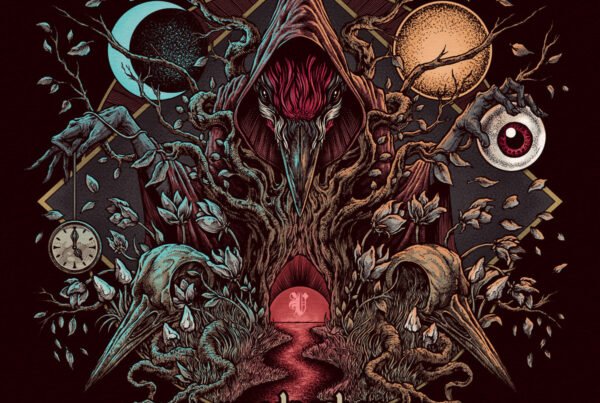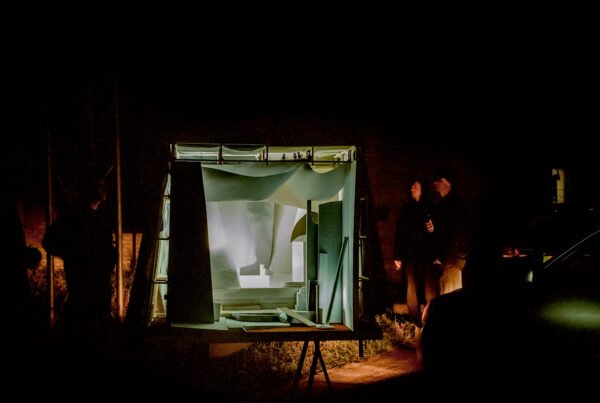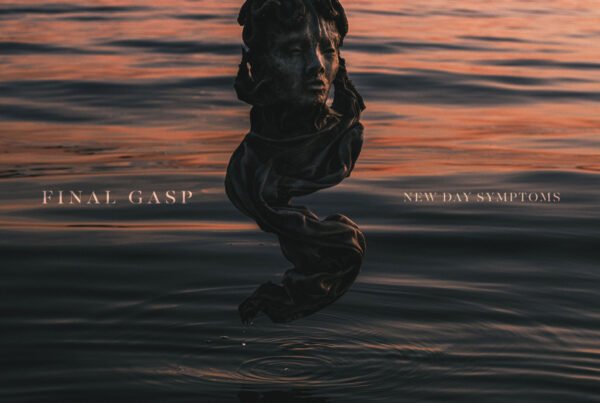Uniform & The Body are back to disinter annihilated and buried sound waves, declaring that Everything That Dies Someday Comes Back.
Release date: August 16, 2019 | Sacred Bones Records | The Body’s Facebook | Uniform’s Facebook | Bandcamp
Uniform and The Body return with their second collaboration album Everything That Dies Someday Comes Back, set to release on August 16. The US noisemakers’ previous effort Mental Wounds Not Healing gave us a good dose of aural decimation mixed with raw emotion, but where that album fell a bit short at times, the new one sees them mending themselves and rising to new heights. While still different in their respective sounds, the bands share a similar palette that flourishes through these collaborations, which is why it was a joy to hear they’ll do it again.
To briefly get into each band’s history, both of them should be familiar to you by now. The Body has been taking great steps in bringing the noisy side of music into spotlight by producing harsh music that’s still easy to digest, hence making it more appealing to the public ear. During the twenty years of their existence, the prolific duo has followed their own vision through over thirty different releases, tying everything together with signature vocals, echoing, and critically pitched snare tones. While The Body is a household act, Uniform has also been making a name for themselves quite effectively recently. Relentless touring and five acclaimed full-lengths in four years have provided the NY industrial noise rockers with a solid ground to stand on. They also gained plenty of traction after few of their songs were picked up by David Lynch and put to use on Twin Peaks‘ third season’s soundtrack. That’s pretty neat, huh? Well, back to Everything That Dies Someday Comes Back.
“Not Good Enough” and “Penance”, the previously released singles, pretty well establish the sound of the entire record. Still, the highlights will be found elsewhere, and that is a good thing as far as I’m concerned. While the singles should obviously be from the prime end of the spectrum to gather the highest amount of anticipation, it’s really a let down if the rest of the release is bland when compared to them. Opening with “Gallows in Heaven”, this album sounds instantly more sinister and intimidating. The first track slowly unfolds with distorted, rhythmic patterns until the bands’ collective clutches start to reach out for you and drag you downwards. The following two tracks have a more constant pulse and drive to them, but it’s the fourth track, “Patron Saint of Regret”, that really grabbed me and emerged above the earlier tracks. The haunting choir swells, female vocals, deranged and a bit out of tune guitar leads, and the overwhelming atmosphere altogether make this track the most noteworthy individual piece of this album. Possibly even the most noteworthy individual track released this year altogether, actually.
The latter half of the album seems to be more coherent and memorable. The chilling clean guitar melody in “All This Bleeding” create a choking feel that evolves into an anxiety-like pressure, but in a way where you want to return to that sensation over and over again. “Day of Atonement” is more like a sound sculpture infused with weird gasp samples and maimed, polyphonic, unpleasant vocal lines. Both of these tracks have a simple underlying beat – a spine if you will – letting the little things and details define the distinctive tones of each. “Waiting for the End of the World” provoke a sentiment that can only be described with that song title. It’s a long, hum-like drone topped with reverb-drenched vocal lines, that will simultaneously make you feel comfortably warm and achingly cold.
The idea for this second album came after a run of selected collaboration live shows. Similarly to its predecessor, this one is also a production of multiple joint studio sessions. The primal energy is still there, although less on the forefront. The atmosphere is still abrasive as all hell, at times counterpoised by the cleaner, less violent passages. Perhaps the fact that everyone knew each other better this time resulted in a better flow and overall amiability, but also led to few decisions that feel too, in lack of a better word, safe. The aggressive, industrial rhythms and unsettling but harmonious noises hit harder this time, yet they’ve also taken some unnecessary shortcuts. This mainly manifests through repetition, taken to superfluous lengths in few occasions. Even though this recursion might have happened a tad too soon, this album will definitely please the fans of both acts and make your ears bleed in a very enjoyable manner.






